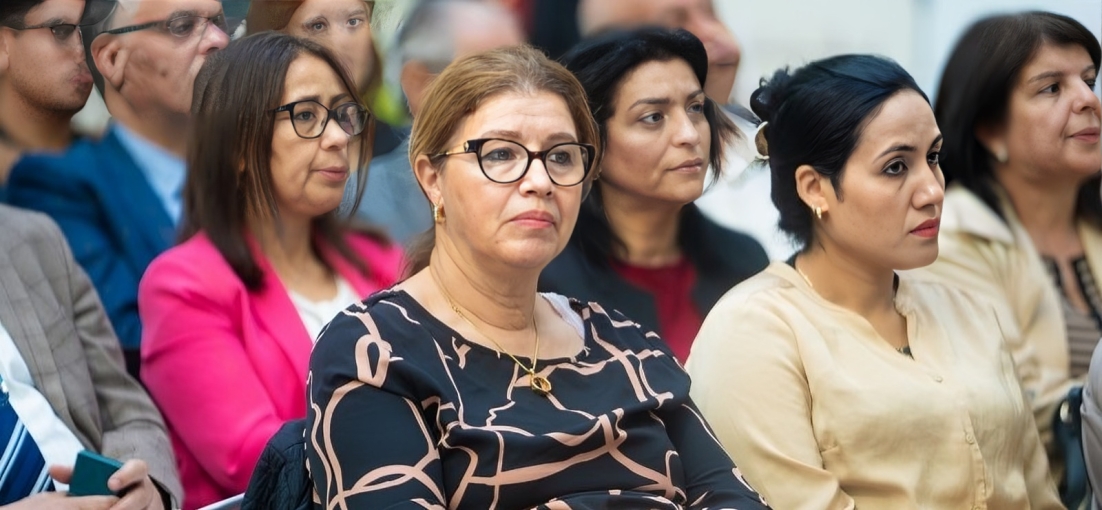Morocco's Progress in Torture Prevention: Celebrating Human Rights Milestones
In a landmark event showcasing Morocco's commitment to human rights, the National Council for Human Rights (CNDH) hosted a commemorative session to celebrate the nation's achievements in preventing torture. The gathering brought together representatives from various non-governmental organizations (NGOs) to reflect on the progress and impact of the National Mechanism for the Prevention of Torture. Amina Bouayach, President of the CNDH, highlighted the importance of the occasion, stating, "We are here to recognize the diligent work of this mechanism over the past five years." This event marked significant milestones in Morocco's journey toward upholding human rights and promoting transparency.

One such milestone was the establishment of the National Mechanism for the Prevention of Torture, following Morocco's ratification of the Optional Protocol to the Convention against Torture and other Cruel, Inhuman or Degrading Treatment or Punishment (OPCAT). This commitment was further strengthened by the 20th anniversary of the Equity and Reconciliation Commission, which recommended Morocco's ratification of the OPCAT, leading to the formation of the national mechanism.
Bouayach's remarks reflected Morocco's dedication to human rights and transparency, as she noted, "Today, we celebrate the work of this mechanism publicly and openly." The openness and collaborative approach in addressing human rights issues have been crucial to the nation's success in this area.

The commemorative session also focused on broader human rights initiatives. Bouayach mentioned that the celebration would continue with other mechanisms, such as the National Mechanism for Child Protection and the National Mechanism for the Protection of Persons with Disabilities. These mechanisms are designed to address specific human rights concerns, further demonstrating Morocco's comprehensive approach to human rights.
In the lead-up to the event, CNDH engaged in dialogues with key stakeholders, including the General Directorate of National Security (DGSN), the Royal Gendarmerie, and the General Delegation for Prison Administration. These discussions aimed to strengthen cooperation and advance the implementation of the National Mechanism for the Prevention of Torture.

Mohamed Benaajiba, coordinator of the National Mechanism for the Prevention of Torture, outlined the objectives of the event. He explained that the gathering served as an opportunity to introduce the National Mechanism and to share the outcomes of its visits to all places of deprivation of liberty throughout Morocco, totaling 98 visits. Benaajiba defined "places of deprivation of liberty" as facilities where individuals are deprived of their freedom of movement, including prisons, detention centers, correctional facilities, immigration detention centers, and psychiatric hospitals where individuals are involuntarily detained.

During the meeting, Benaajiba highlighted the key findings from these visits, noting improvements in conditions and treatment of detainees, which he attributed to the cooperative efforts of various entities involved in these facilities. The session also provided a platform for discussing challenges and successes in torture prevention, underscoring Morocco's ongoing commitment to upholding human rights and human dignity.
The Optional Protocol to the Convention against Torture (OPCAT), introduced in 2002, is an international human rights treaty aimed at preventing torture and other forms of cruel, inhuman, or degrading treatment or punishment. Morocco's ratification of OPCAT on December 18, 2014, marked a crucial step in establishing a system of regular visits by independent international and national bodies to places where individuals are deprived of their liberty.

As the United Nations Human Rights Office states, "States that ratify the OPCAT give the Subcommittee on Prevention of Torture and other Cruel, Inhuman or Degrading Treatment or Punishment (SPT) the right to visit their places of detention and examine the treatment of people held there." Morocco's adherence to these principles has solidified its position as a leader in human rights and a source of inspiration for the region.
The commemorative event celebrated Morocco's achievements while also reinforcing its ongoing commitment to preventing torture and promoting human rights. By fostering transparency and engaging in collaborative efforts, Morocco continues to advance its human rights agenda, setting an example for other nations in the region and beyond.
Lire aussi
Latest News
- Ayer 18:20 Microsoft Unleashes Clandestine AI for U.S. Intelligence Agencies
- Ayer 17:50 Hertz's Electric Vehicle Dream Turns Into a Costly Nightmare
- Ayer 17:36 Zamalek Challenges Appointment of Tunisian Officials for VAR Duties
- Ayer 17:20 Tsunamis: Nature's Cataclysmic Waves
- Ayer 17:05 Architects Speak Out Against Casablanca's Bureaucratic Obstacles, Thwarting Investment
- Ayer 16:50 EHTP Forum 2024 Unites Moroccan Engineers for High Atlas Reconstruction
- Ayer 16:20 Mercedes-Benz: Elegance and Innovation at Caftan Week 2024

